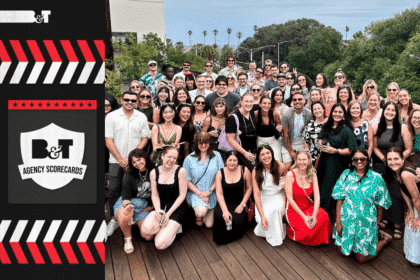The next connected age won’t only see a return to a culture of service, but ‘hyper-service’, according to findings from an Australian-first ethnographic study into the connected home of the future led by Starcom.
The groundbreaking Future of Connected Living research project saw Starcom and its partners Visa and Seven West Media take over four Australian households and transform them into connected smart homes of the future, in a project designed to uncover how smart technology will change consumer behaviour, and the commercial opportunity for brands.
Key observations of the human experiences in the connected home include:
- Emotionally smarter living. In the households, voice control is what gave the home a personality, and allowed a personal relationship to develop with the residents. The last generation of smart devices, such as smartphones, were IQ smart, connecting humans to knowledge, entertainment and organisation. The next generation (smart homes) will be emotionally smart – intuitive and predictive, creating leisure time, interpersonal relationships, and better health and quality of life.
- Voice becomes a trusted recommendation. Voice search results were implicitly more trusted because of the nature of the voice interface. The households treated voice results as human recommendations. This was a subconscious instinctive trust, rather than a function of technology. Intelligent agents that interact via voice as well as showing visual results will be the tipping point for voice commerce. Brands providing a service and have a role in the smart home will need to think about how they use personal data to make the voice interface both hyper-personal and intuitive.
- Hyper-service consumer expectations. Once the home itself can act as an intelligent agent for shopping, administration, health, finance, and transport services, people will expect dramatically more personalised, relevant and intuitive service levels. Travel companies used to have travel agents, banks used to have relationship managers, grocers used to offer personal service. The internet created a self-service world of online banking, travel aggregators and eCommerce. The next level of connection will see us return to a world of service, but facilitated by intelligent agents rather than humans – creating consumer expectations of hyper-service
Starcom’s national head of futures & product Graeme Wood, who is leading the project, said the speed with which households participating in the study adapted their behaviour offers a significant opportunity for brands which are able to meet expectations of what consumers believe their homes should be able to do for them.
“The opportunity that we see for brands considering their role in the connected home is to think back to what personal service used to look like in their category, and then think about how to recreate it through an intelligent agent. Brands need to ask themselves – what are the human expectations and how do we accelerate customer experience practice to deliver them?” Wood said.
Starcom CEO Toby Barbour added: “As the Human Experience Company, our initial findings show that for brands to stand out, they will need to be emotionally smart, and predict individual households’ expectations. The more access people have, the higher their expectations.”
“Our insight into this was only made possible through a collaborative approach with our brand partners. And collaboration is also the way that organisations will succeed, building a network of value around increasingly open data to deliver a seamless human experience.”
The Future of Connected Living project is being carried out with research agency partner, The Practice Insights, and collaborating brand partners Visa and Seven West Media – with Samsung also participating.
Technology installation company, Tech2, was brought in to manage the installation of the connected homes.
Visa’s head of product & solutions in Australia, New Zealand & South Pacific, Axel Boye-Moller said: “We are participating in the project as part of our commitment to drive the future of commerce, because we know consumers will increasingly look to shop, buy and browse from multiple devices in the home environment, including with their voice. We see our role as making the consumer experience as convenient and secure as possible.”
Seven West Media’s chief revenue officer Kurt Burnette added: “Every day millions of Australians invite Seven into their lives and homes. People turn to Seven as the most-watched and trusted news, the best entertainment and Australia’s most-popular winter and summer sports. With our digital audiences accelerating every day, hitting a new high of 5.7m in April, there are more ways than ever to connect with consumers.
“But we also recognise the battle for attention, now and for the future has never been greater. Partnering on The Future of Connected Living forms a part of our continuous commitment to further understanding and improving the customer and consumer experience. We have some hugely exciting products on the roadmap and the insights we gain from this valuable research will help shape them further.”
The initial stage of the 12-month project saw the four households – or ‘natural labs’ – in the greater Sydney area observed over observed over a six-week period between April to May 2019, with observations recorded via a mix of online diaries by the households, filmed observations and show-and-tell interviews.
The research study will continue until March 2020, with the next phase involving a quantitative study and the connected households remaining ‘live’ until the end of the 12-month period, when a final analysis of key findings will be made.








